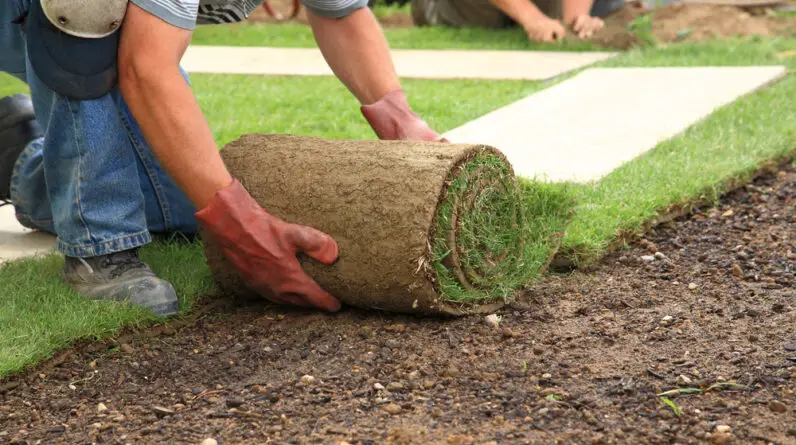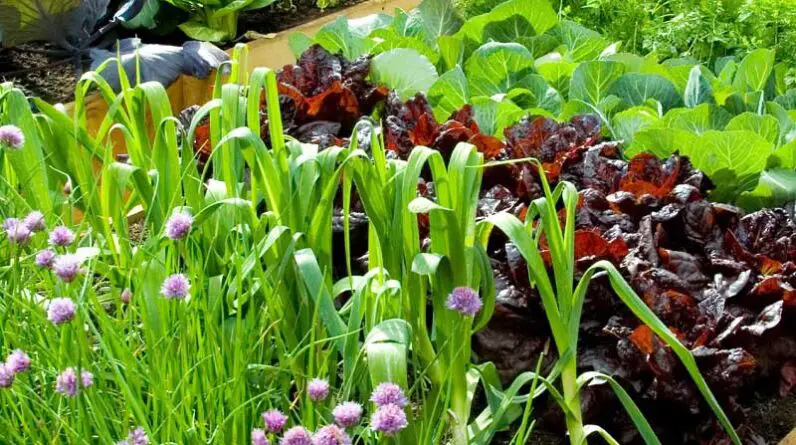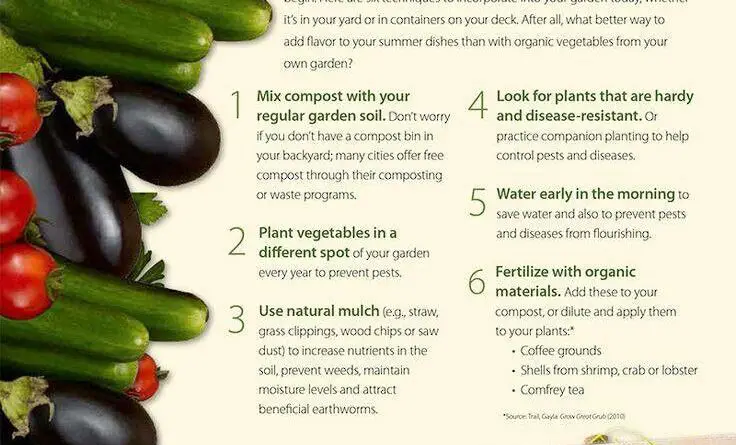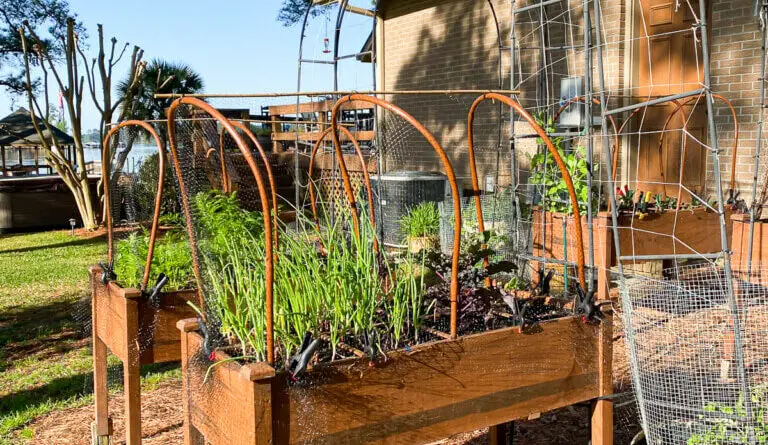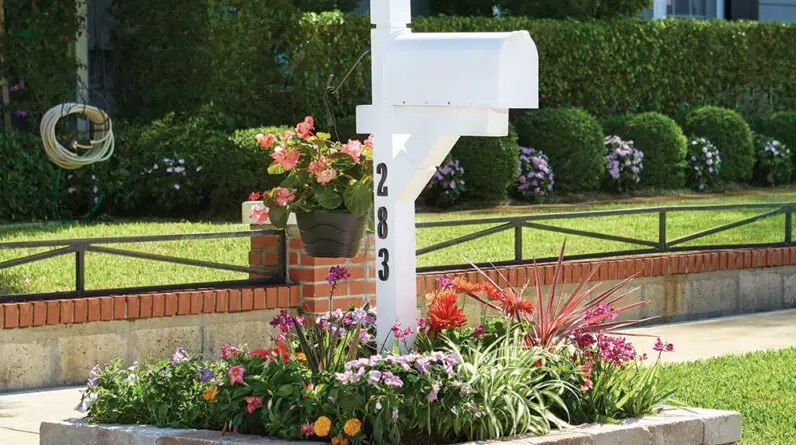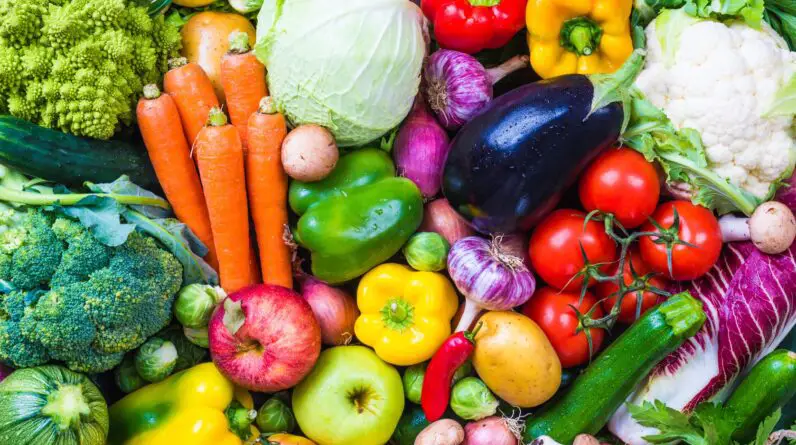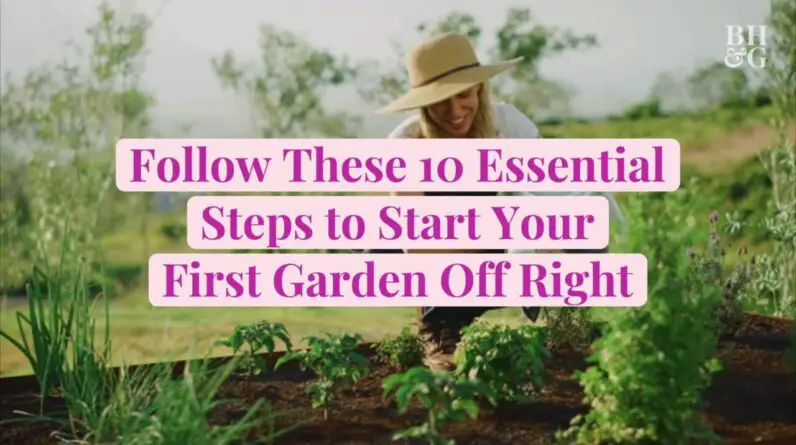
Introduction
Welcome to my guide on 10 essential gardening tips for beginners. Gardening is not only a delightful hobby, but it also provides numerous benefits for those just starting out. Whether you have a green thumb or are completely new to the world of plants, this article will help you get started on your gardening journey.
Why gardening is a great hobby
Gardening offers a multitude of rewards, both for the mind and body. It allows you to connect with nature, reduce stress, and create a tranquil environment. Being surrounded by beautiful blooms and lush greenery can evoke a sense of calm and contentment that is unparalleled. Moreover, gardening provides an opportunity to get some physical activity and improve your overall well-being.
Benefits of gardening for beginners
For beginners, gardening offers a unique chance to learn and grow. It teaches patience, responsibility, and the value of hard work. Through this hobby, you can observe the miracles of nature firsthand and witness the transformation of a tiny seed into a flourishing plant. Furthermore, gardening can provide you with a sense of accomplishment as you watch your efforts bloom and see the fruits of your labor.
In the following sections, we will explore essential tips that will help you navigate through your gardening journey as a beginner. From choosing the right location to learning about plant care and maintenance, these tips will equip you with the knowledge and confidence to embark on a successful gardening adventure. Let’s dig in!
Choosing the Right Plants
When it comes to gardening, choosing the right plants is crucial for success. As a beginner, it’s important to understand your climate and zone. Different plants thrive in different weather conditions and knowing your specific climate will help you select the right plants that can withstand it. For example, if you live in a hot and dry climate, you might consider drought-tolerant plants like succulents or cacti.
Considering your available space and the amount of sunlight your garden receives is another essential aspect. Some plants require full sunlight, while others thrive in shades. Assess your garden’s sunlight exposure and select plants accordingly.
Researching suitable plants for beginners is also essential. Opt for plants that are easy to care for and hardy, as they are more forgiving for beginners. Some popular choices for beginners include tomatoes, zinnias, basil, and marigolds.
Remember not to overwhelm yourself with too many plants or plant varieties at once. Start small and gradually expand your garden as you gain confidence and experience.
when selecting plants for your garden, it’s important to consider your climate and zone, available space, sunlight exposure, and research suitable plants for beginners. By following these tips, you’ll be on your way to a successful gardening journey!
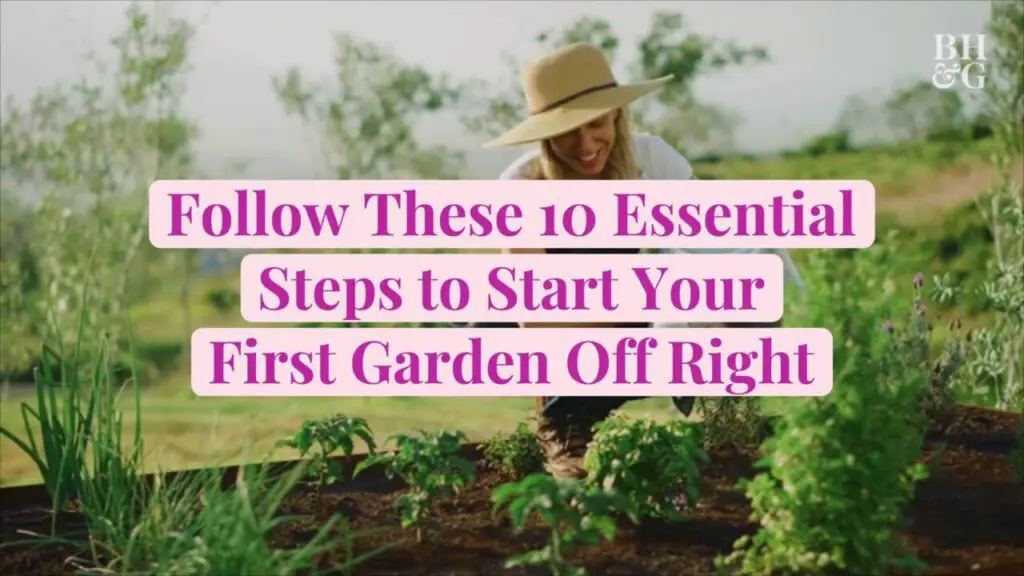
This image is property of cf-images.us-east-1.prod.boltdns.net.
Preparing the Soil
One of the most crucial aspects of successful gardening is preparing the soil properly. By taking the time to create nutrient-rich soil conditions, you can provide the foundation for healthy and thriving plants. In this section, I will guide you through three essential steps to prepare your soil effectively.
Testing and improving soil quality
Before you begin planting, it’s crucial to test your soil to determine its composition and pH level. You can easily find DIY soil testing kits at your local gardening store. Based on the results, you may need to improve the quality of your soil. Adding organic matter such as compost, well-rotted manure, or leaf mold can help increase the nutrient content and soil structure.
Adding organic matter and compost
Organic matter is the key to creating fertile soil. By incorporating compost into your garden beds, you will improve drainage, increase water retention, and boost beneficial microbial activity. Regularly adding organic matter, such as kitchen scraps and grass clippings, will improve your soil’s overall health and fertility over time.
Creating suitable soil conditions for different plants
Different plants have varying soil preferences. Some thrive in well-drained soil, while others require moisture-rich conditions. Research the specific soil requirements of the plants you want to grow and adjust the soil composition accordingly. This will optimize their growth and increase their chances of success in your garden.
By following these tips for preparing your soil, you will provide an optimal environment for your plants to grow and flourish. Investing time in soil preparation is a worthwhile step that will set the stage for a successful and rewarding gardening experience. Happy gardening!
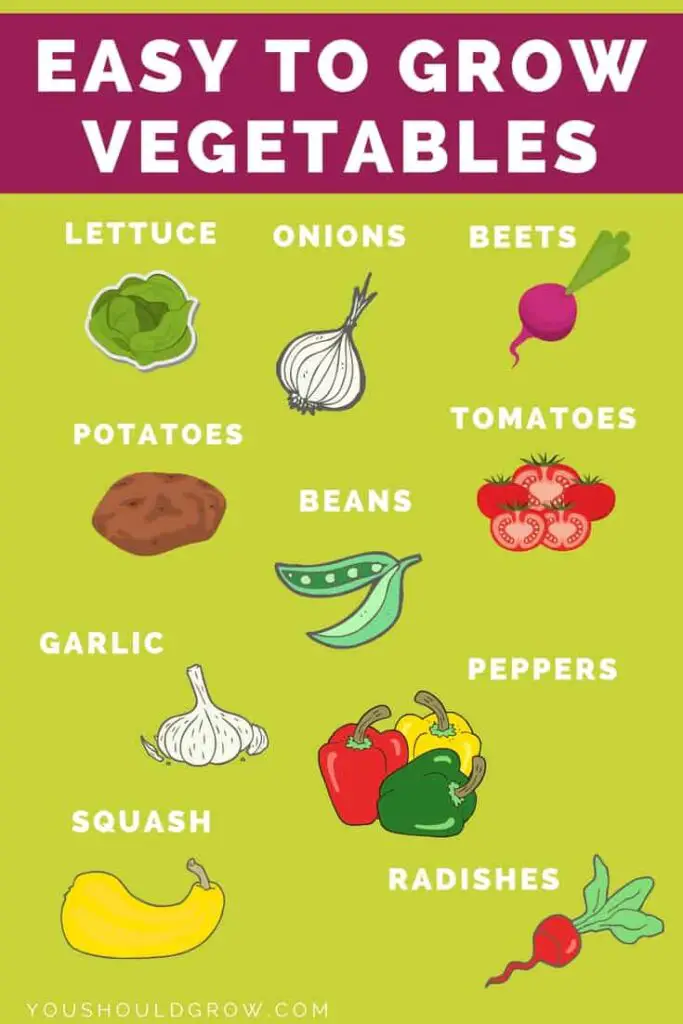
This image is property of youshouldgrow.com.
Planting Techniques
Understanding proper planting depths
When it comes to planting, one of the most important things to understand is the proper planting depth for each type of plant. Different plants have different requirements, so it’s crucial to do some research before you start. Some plants need to be planted deeper, while others prefer to be close to the surface. By understanding the specific needs of your plants, you can ensure that they have the best chance of thriving in your garden.
Providing adequate spacing between plants
Giving your plants enough space to grow is essential for their overall health and productivity. Crowded plants can compete for resources like water and nutrients, leading to stunted growth and decreased yields. It’s important to follow spacing recommendations provided on seed packets or plant labels. This will allow each plant to have enough room to spread its roots and access the resources it needs to flourish.
Watering techniques for newly planted seeds or seedlings
Watering newly planted seeds or seedlings requires special care. Overwatering can drown the delicate roots, while underwatering can lead to dehydration. As a general rule, it’s best to water with a gentle stream or sprinkle to avoid disturbing the soil. Additionally, frequent but light watering is usually more effective than infrequent heavy watering. Keep a close eye on the moisture levels of the soil and adjust accordingly, ensuring that the soil remains consistently moist but not waterlogged.
Properly transplanting potted plants
When transplanting potted plants, it’s important to do so with care to minimize stress and damage to the plant. Start by preparing the new planting hole, ensuring that it is deep enough and wide enough to accommodate the plant’s root ball. Gently remove the plant from its pot, being careful not to break or disturb the roots. Place the plant in the hole, making sure that it sits at the same depth as it did in the pot. Finally, backfill the hole with soil, firming it gently around the plant to remove any air pockets.
As a beginner gardener, mastering these essential planting techniques will set you up for success in your gardening adventures. Happy growing!
Watering and Irrigation
One of the most crucial aspects of gardening is ensuring that your plants receive the right amount of water. Determining the frequency and amount of watering can be challenging for beginners, but with a little guidance, it can become second nature.
Determining watering frequency and amount
To determine how often and how much to water your plants, you need to consider their specific needs. Factors such as the type of plant, weather conditions, and soil moisture levels all play a role. As a general rule, it is better to underwater than overwater, as excessive moisture can lead to root rot or other diseases. Checking the soil moisture regularly and adjusting your watering schedule accordingly is key.
Using appropriate watering techniques for different plants
Different plants have different watering requirements. While some plants prefer constant moisture, others thrive in drier conditions. It is essential to research your plants’ specific needs and water them accordingly. For example, delicate flower blossoms may be damaged if watered from above, so it is better to water them at the base.
Installing a simple irrigation system
For convenience and consistent watering, consider installing a simple irrigation system in your garden. This allows you to automate the process and ensure that your plants receive water even when you are away. Drip irrigation systems and soaker hoses are great options for beginners, as they efficiently target the root zones without wasting water through evaporation or runoff.
By understanding the importance of watering and implementing appropriate techniques, you can set your plants up for success and enjoy a thriving garden. Remember to always consider the individual needs of your plants and adjust your watering practices accordingly. Happy gardening!
Managing Pests and Diseases
Gardening can be an incredibly rewarding experience, but it’s not without its challenges. One of the most common challenges faced by beginners is dealing with pests and diseases that can wreak havoc on their plants. However, with the right knowledge and a little bit of planning, you can successfully manage these issues and ensure the health and vitality of your garden.
Identifying common garden pests and diseases
The first step in managing pests and diseases is being able to identify them. Common garden pests include aphids, slugs, and caterpillars, while diseases like powdery mildew and blight can also be a problem. By familiarizing yourself with the signs and symptoms of these issues, you’ll be able to take action quickly and effectively.
Using organic and chemical pest control methods
Once you’ve identified a pest or disease problem, you’ll need to decide how to address it. Organic pest control methods, such as using natural predators or homemade sprays, are a popular and eco-friendly choice. Alternatively, chemical control methods can be effective in more severe cases. It’s important to research your options and choose the method that’s right for you and your plants.
Preventative measures to reduce pest and disease problems
The best way to deal with pests and diseases is to prevent them from occurring in the first place. This can be achieved by practicing good garden hygiene, such as regularly removing dead plant material and weeds. Additionally, choosing disease-resistant plant varieties and maintaining a healthy soil ecosystem can reduce the chances of problems arising.
Remember, managing pests and diseases is an ongoing process that requires attention and care. By staying vigilant and following these tips, you’ll be well-equipped to handle any challenges that come your way. Happy gardening!
Weeding and Mulching
One of the essential aspects of gardening that beginners need to master is weeding and mulching. Proper techniques for removing weeds are crucial to ensure the health and vitality of your plants. When pulling out weeds, it is important to get to the root and remove the entire plant to prevent regrowth. I find it helpful to loosen the soil around the weed with a small garden fork before pulling it out. This ensures that the root comes out intact.
Another important aspect of maintaining a healthy garden is choosing the right mulch. There are various types of mulch available, such as wood chips, straw, or compost. When selecting mulch, consider the needs of your plants and your climate. For example, wood chips are excellent for retaining moisture and regulating temperature, while straw is great for vegetable gardens.
Mulching offers numerous benefits for your garden. It helps to suppress weed growth by limiting sunlight exposure to weed seeds. Mulch also helps retain soil moisture, reducing the need for frequent watering. Additionally, mulch acts as an insulator, protecting plant roots from temperature extremes. Furthermore, as the mulch decomposes, it enriches the soil with organic matter, improving its fertility.
By mastering the techniques of weeding and mulching, beginners set a strong foundation for successful gardening. These practices ensure healthier plants and minimize the time and effort spent on maintenance, allowing us to enjoy the beauty and abundance of our gardens.
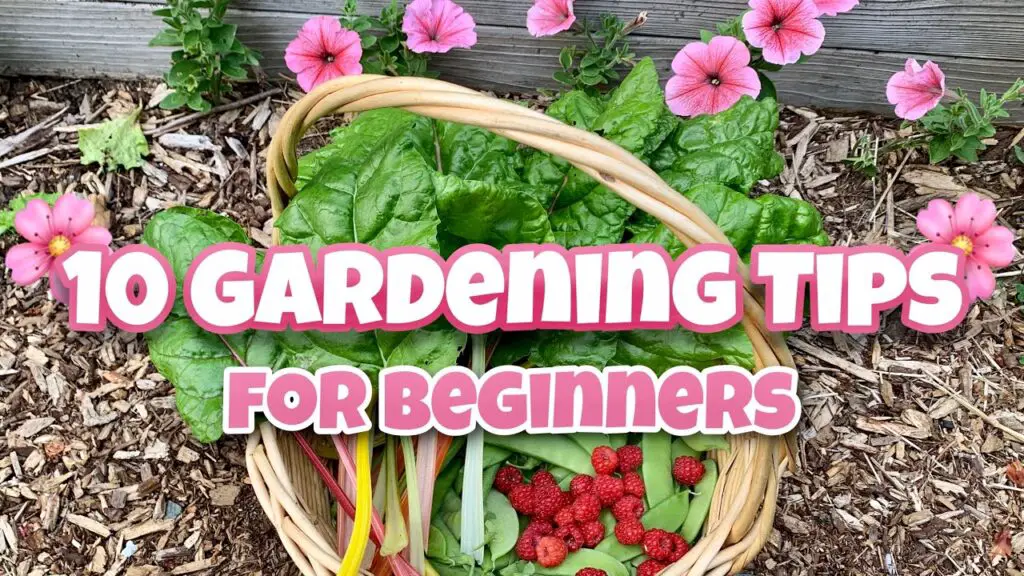
This image is property of i.ytimg.com.
Conclusion
In conclusion, gardening is a rewarding and fulfilling hobby that anyone can enjoy, regardless of experience level. By following these 10 essential gardening tips for beginners, you can set yourself up for success and ensure a thriving garden.
Recap of Essential Gardening Tips for Beginners
- Choose the right location: Select a spot in your yard that receives adequate sunlight and has well-drained soil.
- Prepare the soil: Remove weeds, loosen the soil, and add compost or fertilizer before planting.
- Select suitable plants: Consider the climate, sun exposure, and soil conditions when choosing plants for your garden.
- Plan your garden layout: Arrange your plants based on their size, growth habits, and compatibility.
- Water properly: Provide your plants with the right amount of water, avoiding overwatering or underwatering.
- Mulch and weed: Apply mulch to retain moisture and suppress weeds, and regularly remove weeds to prevent competition for nutrients.
- Prune and trim: Regularly prune and trim your plants to promote healthy growth and maintain their shape.
- Monitor pests and diseases: Keep an eye out for common garden pests and diseases, and take appropriate measures to control them.
- Fertilize appropriately: Feed your plants with a balanced fertilizer to ensure they receive the necessary nutrients.
- Enjoy the process: Gardening is not just about the end result, but about the joy and satisfaction of nurturing plants and watching them thrive.
Encouragement to Start Your Gardening Journey
Gardening may seem intimidating at first, but don’t let that stop you from embarking on this wonderful journey. With proper guidance and a bit of patience, you’ll soon find yourself immersed in the beauty of gardening. Remember to start small, learn from your experiences, and never be afraid to ask for help. The rewards of gardening, such as fresh produce, beautiful flowers, and a deeper connection with nature, are worth the effort.
So, grab your gardening tools and get started today! Happy gardening!


